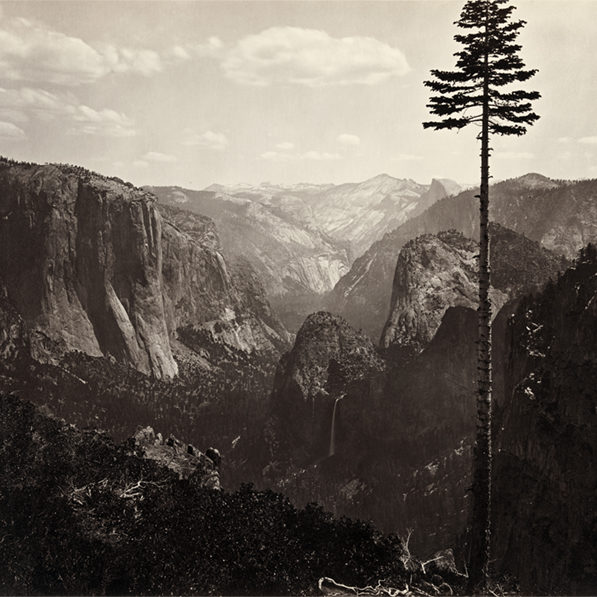How the Photograph Saved America’s Natural Treasures
With Associate Professor Scott Angus
Thursday, March 17, 2022
6-7pm CST – Live and Virtual
3415 Olive St, St. Louis, MO
At the height of the American Civil War a series of photographs motivated President Lincoln to save the Yosemite Valley from development and laid the political foundation for our National Parks. Long before Ansel Adams worked for the Sierra Club there were photographers whose images of the West acted as the catalyst for the protection of the environment and public spaces in America. Angus will introduce the audience to the role obscure and well-known photographers played in preserving the natural and public spaces of America for generations to come. The talk will look at the power that the medium held around the turn of the 19th to the 20th Century, and question if photography still holds the power to save our lands in the 21st Century.
Scott Lawrence Angus holds a Master of Art Theory from the University of New South Wales and a MFA from California State University. He is an avid adventure seeker and has travelled the world working as a photographer for humanitarian and environmental reasons including working with the Filipino Special Forces. Angus studies how photographs work in the context of politics and history to change society. He is an Associate Professor & Director of Photography and Video Media Studies at Maryville University, and the recipient of the University’s prestigious Diversity and Inclusion Award and the Global Awareness Award. Recently Angus produced a film about the Dental Crisis in Rural Missouri, and is working on a book about Missouri and her Natural Treasures.
Image: Carleton Watkins, Yosemite Valley, California, 1861
This is an In Person Event at the International Photography Hall of Fame
Admission: $10 Non-Members/$5 Seniors and Students/Members Free
Members/1839 Society: Reserve Your Free Ticket Here.
Please call (314) 535-1999 or email info@iphf.org for further assistance

